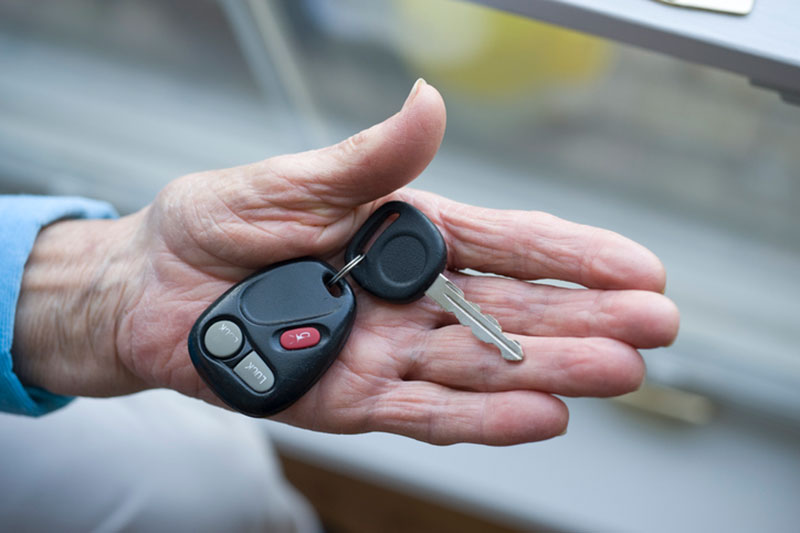
It is a conversation no one wants to have with aging parents, but one that will be inevitable eventually. Having the ability to drive whenever and wherever we choose is a key component to our sense of freedom, yet as we grow older, operating a vehicle can become unsafe for varied reasons: poor vision, decreased reflex and response times, cognitive problems, and more. If you are starting to have worries about an older loved one’s capacity to continue to drive safely, it is time to discuss giving up the car keys. And the good news is that home care helps!
How Can You Know That It is Time for a Senior to Quit Driving?
There are key warning signs to watch for that point to the necessity for a senior to give up the car keys, including:
- Becoming lost on familiar driving routes
- Missing traffic signals or signs
- Failure to yield or cutting off other drivers
- Making wider than necessary turns
- An inability to stay between the lines
- Seeming to be sleepy or not alert
- An inability to judge distances properly
- Becoming easily agitated, frustrated, or angry
- Not using turn signals or mirrors accordingly
How Should You Initiate the Conversation About Giving Up the Keys?
First, try to avoid correcting or criticizing the person’s mistakes while they are driving, as this may cause increased hazardous behaviors. After the car is stopped, calmly mention specific instances of concern that you witnessed as a starting point to the larger conversation about the need for the person to quit driving.
The following tips are good ways to move the conversation forward and to ensure you are being heard and taken seriously. Use the conversation to lower the senior’s stress and to provide a solution that will empower the individual to maintain independence.
Key Points to Keep in Mind:
- Recruit help from others that the senior knows and trusts, either in providing their own instances of concerns or in joining you when it comes to conversation.
- Refrain from shaming or blaming the senior.
- Keep your temperament peaceful and supportive to make sure you do not appear angry.
- Use specific examples of worrisome habits.
- Let the older adult know you are in this together, and that collectively you are going to find an answer that ensures safety for the senior as well as other drivers and pedestrians.
Expect to see resistance and defensiveness, and that it might take more than one conversation.
If the older adult remains adamant about not stopping driving, schedule a checkup and evaluation with the doctor. There may be medication side effects, issues with vision, or other health-related reasons behind driving issues that can be addressed, or the doctor may have more influence in convincing the senior to give up the keys.
How Can an Older Adult Stay Independent Without Being Able to Drive?
Fortunately, there is a simple remedy that allows an older adult to come and go as they wish: Abby Senior Care’s in-home caregivers in Denver, CO and the surrounding areas.
Our caregivers are available to offer transportation and accompaniment whenever and wherever a senior would like to go, including:
- Doctor appointments and procedures
- Shopping and running errands
- Social visits
- Going out to lunch or for a walk in the park
- Hair and nail appointments
- Exercise or any other classes
- Even vacations or longer-destination outings
The best part? A care provider offers friendly companionship and conversations that make any journey much more fun than going alone!
Connect with our in-home caregivers in Denver, CO, and the nearby areas at 303-699-8840. Learn how home care helps seniors stay independent and help a senior you love live their best life, safely and happily.
